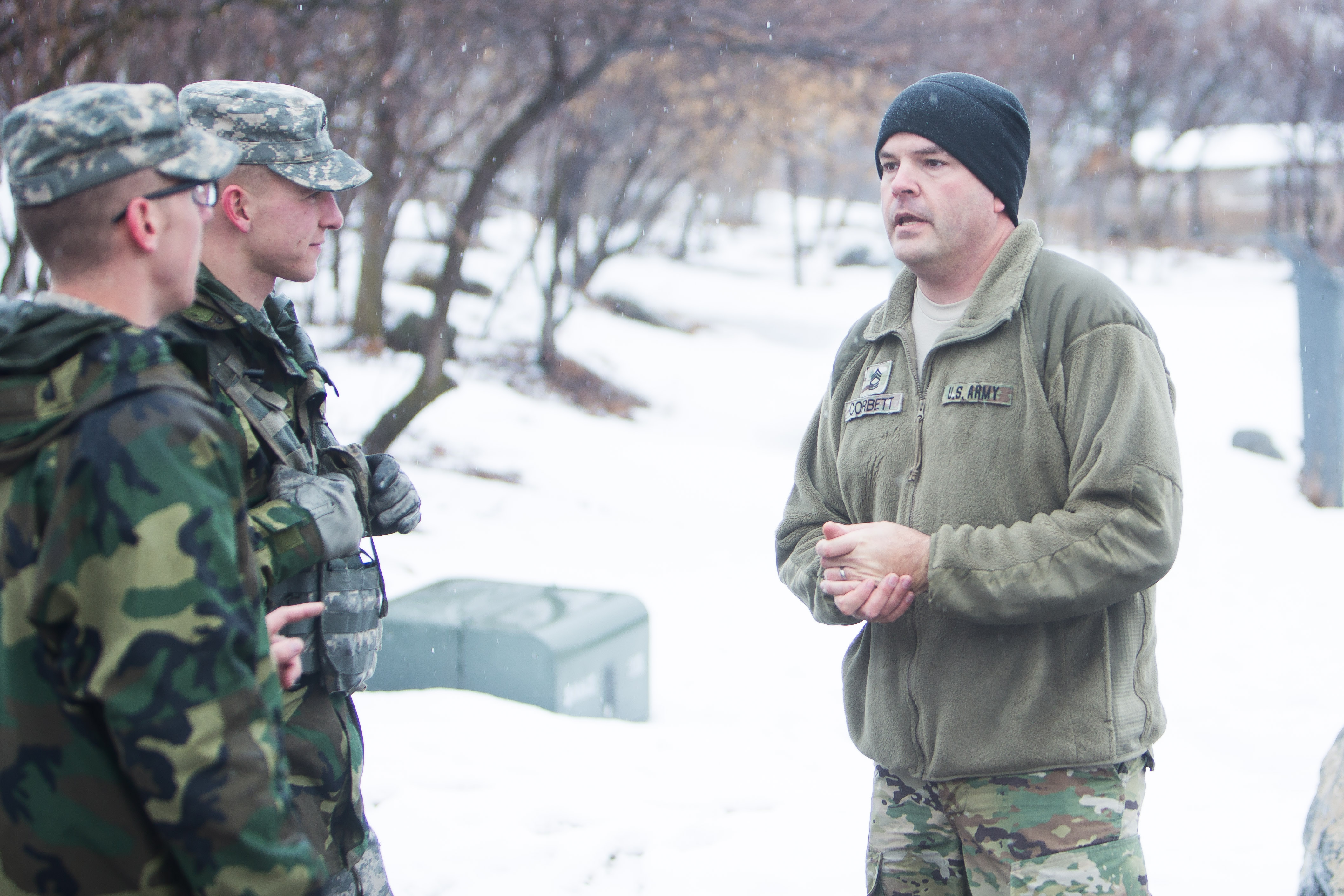
Potential changes in BYU’s ROTC program would not have an impact on the leadership structure of the ROTC.
The commander of BYU’s Air Force ROTC cadets said the program will move to Utah Valley University due to a discord over BYU’s honor code last week. However, the Department of Defense has yet to confirm the move. No official decisions have been made regarding the move of either the Air Force or Army ROTC. A Defense Department official said these conversations are expected to be happening in the weeks ahead.
“We are organized in separate companies, UVU and BYU, so we each have separate cadet leadership,” said Chase Dowse, the new Public Affairs Officer for the BYU Army ROTC. “Cadets rotate leadership positions by semester.”
Cadets are given opportunities to lead in various positions, allowing them to develop skills and attributes that may help in their future military service.
Each semester, cadets are given new leadership opportunities to develop skills and learn how to lead others. The current leadership positions in BYU’s ROTC include Byron Hunter as the company commander and Austen McCleary as the first sergeant, along with many others.
Leadership positions allow cadets in the ROTC to learn from hands-on experience and engage in sharing the goals of the faculty with the entire ROTC.
Hunter, a BYU senior studying finance with a military science minor, is now the Company Commander of the ROTC program at BYU.
“What that means is I am now in the leadership role in charge of the entire ROTC program at BYU, including just over 100 cadets, freshmen through senior,” Hunter said.
Hunter said many experiences in his life have prepared him for leadership roles, especially being homeschooled. That allowed Hunter to tailor his learning to his specific interests and taught him how to adapt.
“Adaptive leadership — being able to adapt to your surroundings, being able to adapt to things not going as planned — is something very critical for anyone in the military,” Hunter said.
Hunter added the ability to adapt is something he has continued to learn and practice throughout his time in the ROTC.
Josh Huston, a third-year cadet history major, also received a new leadership position. He is now leading the Ranger Challenge Team — a long-distance obstacle team specializing in military tasks including first aid, shooting and land navigation.
Huston is in charge of a nine-man team with cadets ranging from freshmen to seniors. The team is currently preparing to compete in a regional competition. The cadets will move on to an international competition if they qualify. Huston competed on this team his freshman year, and BYU placed seventh out of nearly 50 teams.
Huston said he gained valuable experience and developed ideals about leadership throughout his years in the ROTC. The army has various core competencies they require in their leaders. He believes the most important qualities in a leader are character and competence.
According to Huston, even if a leader has the right personality and integrity, his subordinates will not trust him if he doesn’t have the knowledge and hasn’t made himself proficient in the skills required to successfully execute a task.
Being a leader in the ROTC can prepare cadets for future service in the army.
“Within a few months you’ll be leading a platoon of anywhere from 30-40 soldiers, some of whom have more experience than you,” Huston said “The thing that sets you apart is the ability to lead men.”
Master Sgt. George Corbett is the senior military instructor at BYU. He works specifically with the junior cadets.
“I have a lot of experience with junior officers — lieutenants — working side by side with them, and I have also been involved in training people who are new to the army as a drill sergeant,” Corbett said. “I don’t take the traditional drill sergeant approach that you see in movies like yelling and stuff, but I understand what is necessary to get a civilian into service.”
Corbett has served in various leadership positions since he enlisted in the army right after high school. Corbett focuses on linking his army experiences to those his cadets have had so they can envision themselves doing an army job. Corbett will often relate military service to missionary service, as many of his cadets are members of the LDS Church and have prepared for and completed missionary service.
“You have to trust in the skills you’ve already developed and develop expertise in the military aspects where your mission is going to be so you can bring the same amount of confidence to a military task as you did to your calling,” Corbett said.
Connecting with his cadets as a leader is important to Corbett. Leadership plays an integral role in the structure of the ROTC and provides cadets with the chance to develop integrity and character.
BYU has been home to Air Force ROTC since 1951; Army ROTC was added in 1968. A move to UVU must be approved by the Department of Defense.




